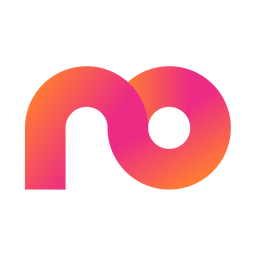Coaching and training your revenue team is one of the core elements of revenue enablement, and enablement often falls under the responsibility of RevOps.
It begins with onboarding, and ensuring that new hires get to full productivity as quickly as possible without rushing them, or leaving them without the necessary skills, attitudes, and techniques to excel in their roles.
It doesn't end there, however.
Everboarding, training, coaching, sales-readiness. Whatever it's named in your organization, the teaching doesn't stop after a few weeks of onboarding.
Truly effective revenue enablement means continuously working to support sales, marketing, and customer success teams, whether they're full of new hires, or experienced reps who can improve their talents.
This article covers:
- Onboarding
- Training and coaching
- Sales skills
- Marketing skills
- Customer success skills
- Training your RevOps team
Onboarding
While continuous support and ongoing coaching are vital to revenue enablement's long-term success, step one is onboarding.
While onboarding is the first step in bringing a rep up to speed, it's by no means the easiest.
Onboarding is an important step to get right because it's your chance to instill good habits and pass on best practices to incoming reps who will, in time, form the backbone of your revenue team.
You want the onboarding experience to be enjoyable and worthwhile for new team members so they feel welcome and supported, while also providing them with the skills and attitudes needed to contribute to the organization (with as quick a ramp-up time as feasible too).
Onboarding is also the first place where revenue enablement can really leave its mark; so it's a nice one to get right when it comes to proving your value to the C-Suite.
There's a huge range of different approaches to onboarding, with some revenue enablement professionals being proponents of slightly longer preparation and training times to get the biggest payoff down the line, and others believing efficiency and effectiveness can be found quickly.
There's no right answer, of course. But it's important to keep an open mind and learn from other revenue enablement professionals' approaches. While you might not like the entire system, there's always nuggets of wisdom to be found.

Training and coaching
As important as onboarding is, every revenue enablement practitioner knows the hard work doesn't stop there.
Reps need to be continually trained and coached after being onboarded. This means teaching new skills as well as refreshing old ones, to ensure that sales reps are always working with industry best practices.
It doesn't matter whether you're in-person, virtual, or in a hybrid training session environment.
If you're continuously training your reps, they'll be constantly learning. That means ongoing improvement and growth, both for your teams and your organization as a whole. That's how you maximize revenue growth consistently.
It's important to analyze where reps are strong (and can teach their colleagues), and where they're weak so that you can tailor training to specifically target weak spots in rep behavior.

This is important because if a sales rep is absolutely stellar at making discovery calls but can't quite close deals effectively, there's no reason to pile on a bunch of discovery call coaching. Otherwise, you'll just annoy your reps with unnecessary pieces of training that they won't even try to remember.
As a revenue enablement professional, you have to recognize the needs of your reps. This means knowing when to apply broad training across the organization, and when to hone in on more personalized coaching where necessary.
The way an enabler conducts a training session itself can have a huge impact on information retention. It's possible to present the exact same information in two different ways, and one way will be far more memorable and useful to reps than the other.
As mentioned before, the enablement community is an open one, and there's always the opportunity to learn and take advice from your revenue enablement peers when it comes to training and coaching best practices.

Sales skills
A sales team full of reps who are highly skilled will perform better than a less-skilled team. That's the nature of sales.
When you're leading a revenue enablement department, you have to be in-the-know regarding the essential sales skills every modern sales rep should have.
The sales landscape is constantly changing, and with that means new skills come to the forefront. Remote selling skills, new AI technology, and more that your sales team needs to master.
Whether it's social selling, buyer-centric selling, evolving rep roles, or something else, there's always a new trend to keep your reps updated with. So naturally, sales skills development is a key element for any revenue enablement professional.
It goes without saying that different sales roles require different skill sets, and the responsibility lies on revenue enablement to provide each position with the skills and talents they need to contribute to the organization's goals.
When it comes to sales skills, enablers have to keep one thing in mind: sales is about persuasion. Strong persuasion skills can be taught. Your reps who are weaker when it comes to sales persuasion can be improved with the right skills.
While you can train reps on how to use the latest tools and tech in the sales realm, the actual skill of persuasion always has to be a consideration as well.
Ultimately, when it comes to sales skills, what you’ll find is that there are countless strategies and methodologies out there. As a revenue enablement professional, it's your role to keep an open mind and absorb as much knowledge from across the sales landscape in order to become a better version of yourself.
Through having an open mind, you'll pick up methodologies, tips, advice, training methods, and more from your peers which will shape your revenue enablement department into the best possible version of itself.

Marketing skills
Similarly, a highly skilled marketing team will do wonders for generating brand awareness and lead generation. Therefore, you should stay up to date with the latest marketing trends and skillsets.
Ensuring your marketing teams have the right resources to keep up with industry trends and upskill themselves is a huge part of revenue enablement.
Developing a place to store marketing materials is key to ensuring all your marketing executives have access to key recordings and best practices, enabling easy sharing of information across the team.
Whether your marketing team is full of generalists or is split into specialists (eg. product marketers, revenue marketers, etc.) there are some basic skills all your marketers will require, such as storytelling, copywriting, and data analysis. And some more specific skills that will need further training, such as product positioning, or agile marketing.
As an enabler, you should understand which skill sets are required for each of the roles on your marketing team, and tailor the training program to their responsibilities and weaknesses.

Customer success skills
Customer success teams hold a wide skillset that must be maintained to allow them to serve your customers effectively. There are many customer success events and courses that can help your team upskill.
Skills required for customer success managers include change management, empathy, communication and conflict resolution.
Mark Higginson, Chief Customer Officer at Roster, suggests your customer success team should also be confident in sales skills, such as identifying goals, aligning them with goals, and forming mutually beneficial partnerships.
As an enabler, this might be the perfect opportunity to integrate your sales and customer success training days. These teams can interact, learn from each other, and make better cross-team connections.
Leaving your team more aligned, and equipped to deliver value to your customers. It’s a win-win!

Training your RevOps team
Don’t forget that your revenue operations team will require training too. Whether it’s upskilling on a new tool, or learning revenue strategy best practices, RevOps isn’t above continuous learning.
Whether your team prefers articles, reports, podcasts, attending events, online courses, or community networking, staying up to date on the latest revenue operations landscape is key to forging ahead.
Fancy getting a RevOps certification? Our Revenue Operations Certified: Core course provides you with the insights you need to lead your revenue strategy with confidence.





